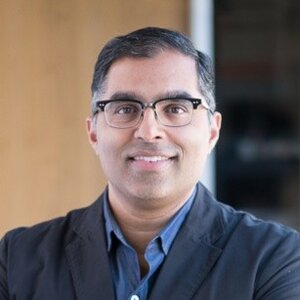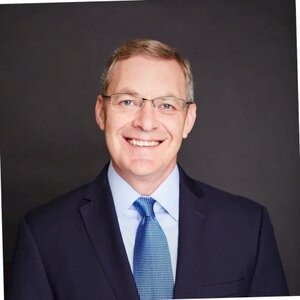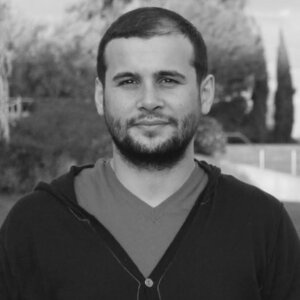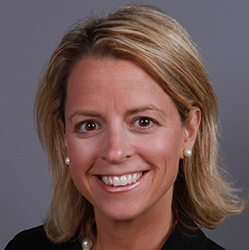
(Join us at our Becoming Us group therapy sessions, brought to you by BetterHelp, starting on July 9 (get tickets here!) and our Healthcare in Politics salon on September 30)
At Vator and HP’s Future of Virtual Care event last Wednesday, a group of healthcare executives discussed how they are preparing for COVID going forward.
“What are you doing at your respective businesses to ensure that you’re prepared? Particularly for Uday: you mentioned there are a lot of people who were left out, who couldn’t get care because we had to take care of all these other people or we had to force them to stay at home. So, what’s your focus on how we stay prepared?” co-moderator Bambi Francisco Roizen (Founder & CEO at Vator) asked.
Here’s how each panelist answered the question.
 Uday Kumar (Founder, President & CEO, Element Science):
Uday Kumar (Founder, President & CEO, Element Science):
“As a business or as a society? Luckily, or unluckily, we had a first run in May, and, unfortunately, if you look at the curve, it looks like the slope of this curve in some states is almost exactly the same or even greater. So, I’m not sure we totally learned everything we could have learned.
I would say, going forward, just talking more about businesses and how I’m seeing things, particularly as the school year starts, for many of those with children or no children or have children or whichever way it is, there’s some interesting opportunities that virtual care will allow. I have a colleague who’s a surgeon, and his wife is a surgeon also, but they’re actually seeing patients at half the day, at different halves of the day now, because one can take care of the kids in the morning and one can take care of the kids in the afternoon. So, someone was asking about, ‘if people are working most of the day, and particularly those groups in society who have to go to work, like there’s a study in the Mission in which the majority of cases where those who actually, physically have to go to do jobs in which they needed to be present, and that disproportionately affects certain groups. If you could allow them a way to get care off at different times of the day, because it also suits the ability to manage childcare or opportunities.
We, in our company, for instance, have lots of double working spouses and we offer, you don’t have to work five days a week anymore, you can work when it fits you. Be in the office maybe two days a week, but if you need to work nights and shift and why should two parents be both at home on Saturday and no one at home on Tuesday, when it’s not possible if your kids are home? So, I think there’s a lot of interesting opportunities in which the realities of life will, in the COVID era, will make some choices, which virtual care will be very well suited to potentially allow care to continue to be delivered, even as people really change what the fundamental idea of what work looks like, what childcare looks like, what school looks like. Som I’m positively hopeful that the flexibility, will enable continued care, but we’ll see. We hopefully won’t go to a point where people avoid getting care again.”
 Bruce Harrison (President, El Camino Health Medical Network):
Bruce Harrison (President, El Camino Health Medical Network):
“I’m not sure it’s going to be a second wave in the Fall or whether what we’re seeing now is just going to continue. The numbers have spiked in the last couple of weeks, close to where they were at the beginning of the shelter in place. So, we are seeing an increased number of COVID patients coming through at our hospitals and clinics, as well as people testing positive, and I think that, from a regulatory standpoint, some of the flexibilities that we’ve been provided, in terms of restaurants and other things reopening, will be certainly evaluated but I do believe that healthcare is going to continue. Our doors are going to be open, the lights are going to be on. I don’t think we’re going to shut down and cancel elective cases, the way we did three months ago. People need their care for cancer services and they need their diabetes care and everything else. And so, what we really have learned, and we’re still learning every day, is how can we safely deliver health care for our patients? How do we ensure that when people need to be seen in person that we deliver safe, sterile care in a great environment? That we protect our staff, and that we use tools like virtual care when we can, because it really becomes a great vehicle for social distancing.”
 Eren Bali (Co-founder & CEO, Carbon Health):
Eren Bali (Co-founder & CEO, Carbon Health):
“I mean, right now the cases are back to where they were before, and the positive rates in our test are actually back to where it was before. But, that said, the major difference I would say is, now we have a lot more information and studies about the transmission factors of this virus. Unfortunately, we have not really taken advantage of this, but we do have that knowledge. So, for example, we now know that you can run clinics fairly safely. It’s actually not that much of a problem, like the healthcare service access points are not the problem. But, that said, our testing capacity was a massive failure, and around mid-March we made the decision not to rely on government organizations anymore. We kind of gave up following CDC, roughly on March 15. So, we now just assumed that whatever we do, as healthcare providers we are responsible to our communities, as we are making decisions more independently because they’ve shown they can’t be relied on, the CDC.
So, I won’t expect to like have a full on shelter in order again. I don’t that’s necessary but, that said, the cases are going to increase. So, right now, the things we are trying to do to prepare is really open up testing with COVID at-home tests that we have. It was paused for a while but now they’re finally back online. I think right now we have 10 pop-up centers, we’re trying to get 100 pop-up testing centers around the entire country, not just our normal service areas, because we are seeing that the large organizations, it’s really hard for larger scale organizations to change their service offerings very quickly. So, companies like ours, which are more nimble, tech enabled care providers can actually do these type of changes much more quickly. So, we see it as a great responsibility. Whatever testing capacity we have today, we will likely have roughly 10x that very soon.”
 Cynthia Zelis (Chief Medical Officer, MDLIVE):
Cynthia Zelis (Chief Medical Officer, MDLIVE):
“We know that this changes day by day and, specifically related to COVID, we need to be prepared to surge up if things happen, because we don’t know where and when and how that can happen. What I would say, though, as a bigger picture related to how do we prepare, how do we, one, prepare for seasonality? There’s going to be more illness and aspects of influenza, so there could be a very concurrent COVID second surge because we can’t predict this with influenza virus. So are we going to do that? But, most importantly, as this conversation started up at the beginning, where we talked about what virtual care was, we need to prepare more, and how we’re going to continue this momentum of virtual care. Really, how are we preparing? Sure, let’s prepare for the second surge, but, more importantly, how are we going to take this opportunity in this pandemic to really boost virtual care which, at the end of the day, all of us here are very aligned that it is the way we’ll begin to transform healthcare and really be able to make an impact.”
 Archana Dubey (Global Medical Director, HP):
Archana Dubey (Global Medical Director, HP):
“The waves will keep coming, until we would have 60 percent immunity, or a treatment that would become available, to be more exact. Either immunity comes through a vaccine, or there’s one rare possibility that the virus becomes weak and then we would be able to get rid of it, in a way. Until then, these waves will keep coming and human behavior will guide how much of the peak this will be. But, with this somewhat increase in incidents and also hospital beds being filled up, there is a little bit more comfort in providers to be able to provide in-person care augmented with virtual care.
Initially, when COVID-19 happened, and the shutdown happened, everybody shut down, including the providers. What Bruce was mentioning is that we’re going to stay at the level that we’re at because we also know that the community exposure, compared to the in-hospital or in-clinic exposure, there’s a difference between that. We have better tools to control the environment and we will be able to provide care that’s needed in-person for our patients. So, cancer care or cardiac care or other things that we do need to put our hands on the patient and do procedures, need to continue and happen. But, now, we understand the virus and we are better prepared to fight it at a hospital and clinic level.
I do worry about vaccination rates being impacted by this, because vaccination and pediatrics, especially, is considered routine care, and that got impeded by this whole COVID-19. That could be a huge gap that we’re not looking at, and I think we need to, because that could lead to other kinds of mini epidemics, or care gaps in patients who are quite young in demographics. So, those are a couple of things. There’s a positive, and there is a negative that we need to be mindful of in closing out those gaps that has been inadvertently created because of the COVID-19 pandemic.”
Thanks to our sponsors: UCSF Health Hub, HP, Avison Young, Advsr, Scrubbed, Alchemist Accelerator and Stratpoint.
(Image source: hdnux.com)


















